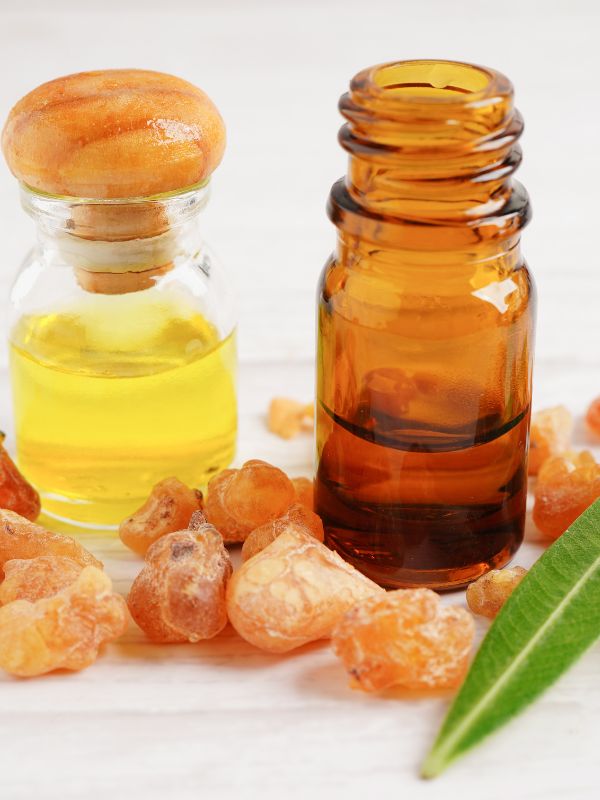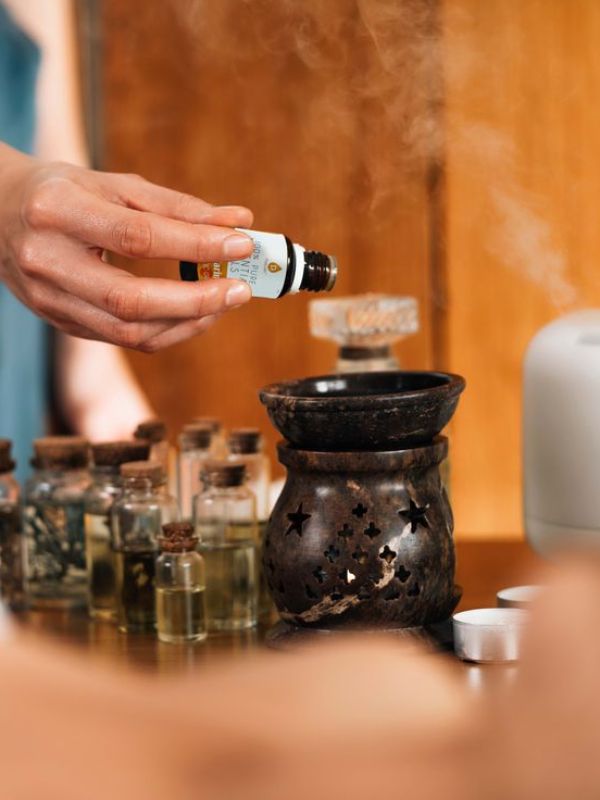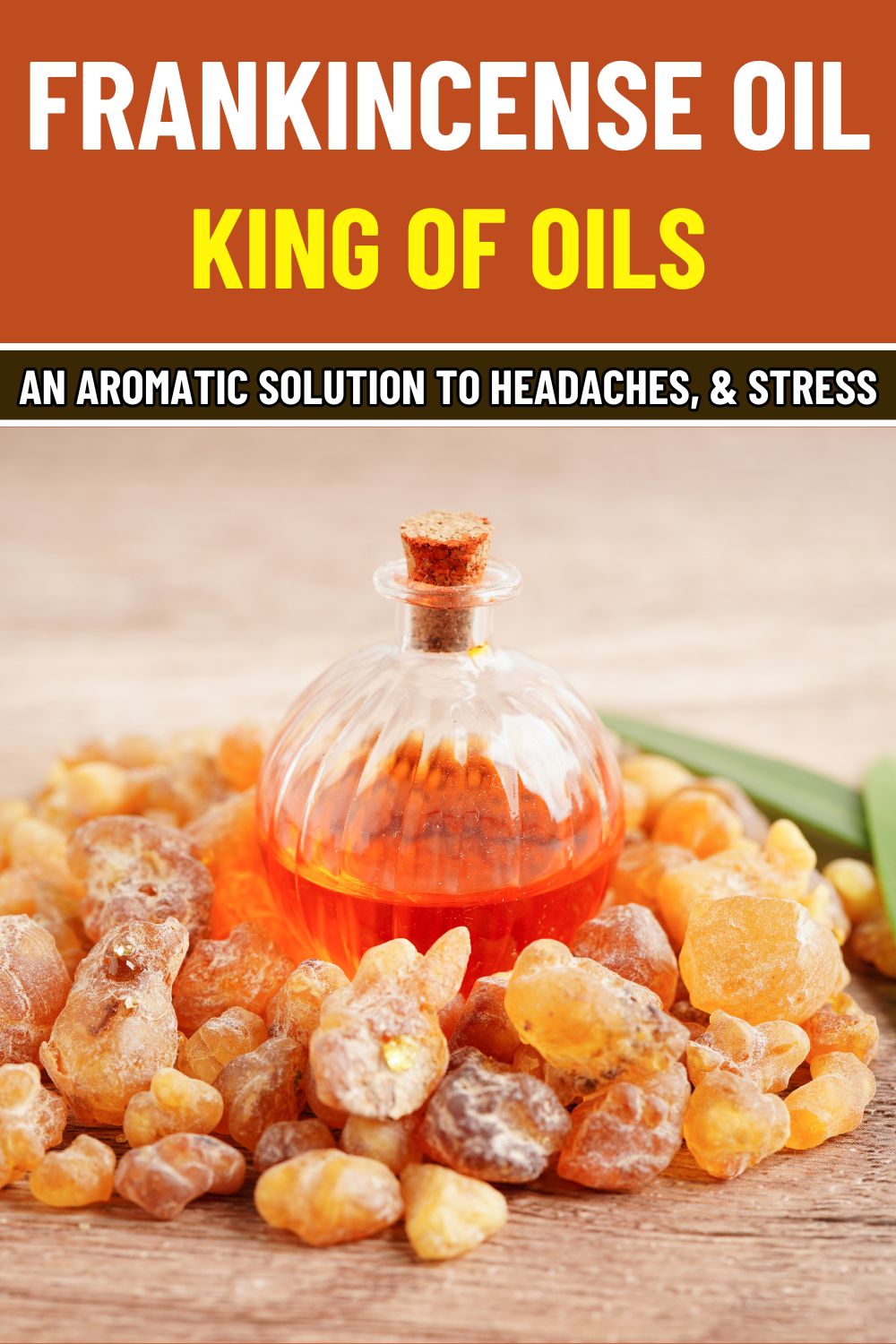If you’re looking for a natural, holistic remedy that can ease both physical pain and emotional distress, you might want to try frankincense oil.
This ancient essential oil, derived from the resin of the Boswellia tree, has been used for centuries for its calming, anti-inflammatory, and mood-boosting properties.
Science is now catching up, proving that frankincense oil can help reduce migraines, relieve stress, and even ease symptoms of depression. Let’s dive into how this powerful oil works and how you can use it to improve your well-being!
The Science-Backed Benefits of Frankincense Oil
1. Reduces the Severity and Frequency of Migraines
Migraines can be debilitating, but frankincense oil may help! Studies suggest that its anti-inflammatory properties help reduce swelling in blood vessels, which is one of the main triggers for migraines.
Frankincense contains boswellic acids, compounds that block pain-causing enzymes and help reduce headache intensity. Regular use may lead to fewer migraine episodes and less reliance on over-the-counter painkillers.

2. Relieves Stress and Eases Anxiety Naturally
Frankincense oil has been shown to have a calming effect on the nervous system. It reduces cortisol levels, the stress hormone, making it easier to feel relaxed and at ease.
Research indicates that inhaling frankincense oil activates brain pathways that promote tranquility, making it a great option for managing chronic stress and anxiety attacks.
3. Lifts Mood and Helps with Depression
Feeling down? Frankincense oil has antidepressant properties that help elevate mood. It stimulates the release of serotonin and dopamine, two neurotransmitters responsible for happiness and emotional balance.
A study published in the Journal of Psychopharmacology found that frankincense oil had mood-lifting effects similar to traditional antidepressants, making it an excellent natural alternative.

4. Promotes Better Sleep and Combats Insomnia
If stress or headaches are keeping you up at night, frankincense oil can help promote deep, restful sleep. Its relaxing scent reduces racing thoughts, while its sedative properties help slow down brain activity, making it easier to fall asleep.
Diffusing frankincense oil before bedtime may improve sleep quality and reduce nighttime awakenings.
5. Reduces Inflammation and Supports Brain Health
Chronic inflammation is linked to both migraines and mood disorders, and frankincense is one of the best natural anti-inflammatories available.
The boswellic acids in frankincense help protect brain cells from oxidative stress, which can reduce the risk of neurological disorders, including depression and anxiety-related conditions.

6. Improves Oxygen Flow to the Brain
One of the lesser-known benefits of frankincense oil is its ability to enhance oxygen absorption in the brain.
Proper oxygenation can help reduce headaches, improve concentration, and even boost energy levels, making it an excellent remedy for brain fog and fatigue.
7. Lowers Blood Pressure and Heart Rate
Frankincense oil acts as a natural sedative, helping to reduce blood pressure and slow heart rate, which are often elevated during stress, anxiety, or panic attacks.
Just a few deep breaths of frankincense-infused air can help calm the nervous system and restore a sense of balance.

8. Supports Hormonal Balance
Hormonal imbalances are often linked to migraines, anxiety, and depression. Frankincense oil can help regulate hormone production, including cortisol and estrogen, which may ease mood swings, stress, and menstrual-related migraines.
How to Use Frankincense Oil for Migraines, Anxiety, and Depression
1. Aromatherapy Inhalation
Best for: Anxiety, stress, migraines, and depression
First, add 4–5 drops of frankincense oil to a diffuser filled with water. Next, turn on the diffuser and allow the aroma to fill the room while you take slow, deep breaths for 10–15 minutes.
If you don’t have a diffuser, you can try this alternative method: Rub 1–2 drops of frankincense oil between your palms, then cup your hands over your nose and inhale deeply.

2. Topical Application for Pain Relief
Best for: Migraines, tension headaches, and inflammation
First, dilute 2–3 drops of frankincense oil with a carrier oil (such as coconut or jojoba oil) to avoid skin irritation. Then, gently massage the mixture onto your temples, neck, or forehead to help ease migraines and tension headaches.
If you need a stronger effect, you can also apply the oil blend to pulse points like your wrists, behind the ears, or chest for ongoing relaxation and pain relief.

3. Bath Soak for Relaxation
Best for: Stress, anxiety, and muscle tension
First, fill your bathtub with warm water. Next, add 5–8 drops of frankincense oil to the water and swirl it around to distribute the oil evenly.
Then, soak in the bath for 20–30 minutes, allowing the calming aroma to relax your nervous system while the oil absorbs into your skin.
For an even deeper relaxation experience, you can also add a handful of Epsom salts, which help relieve muscle tension and improve circulation.

4. Meditation or Yoga Companion
Best for: Emotional balance, clarity, and mindfulness
First, diffuse frankincense oil in your meditation or yoga space to enhance focus and create a calming atmosphere.
If you prefer a direct application, you can also dab a small amount of diluted frankincense oil onto your wrists, third eye (between your eyebrows), or the back of your neck before you begin.
Then, as you practice deep breathing, meditation, or yoga, you will start to feel the grounding and calming effects of the oil.

Cautions and Precautions
Always dilute before applying to skin, as undiluted essential oils can cause irritation.
Pregnant or breastfeeding women should consult a doctor before using frankincense oil, as its effects on pregnancy are not well-studied.
Do not ingest frankincense oil unless directed by a healthcare professional.
If you have asthma or respiratory conditions, test a small amount first, as some individuals may be sensitive to strong essential oils.
Disclaimer
This article is for informational purposes only and should not replace medical advice. Always consult a healthcare provider before using essential oils, especially if you have underlying health conditions.

A Powerful Natural Remedy for Migraines, Mood, and Mental Clarity
